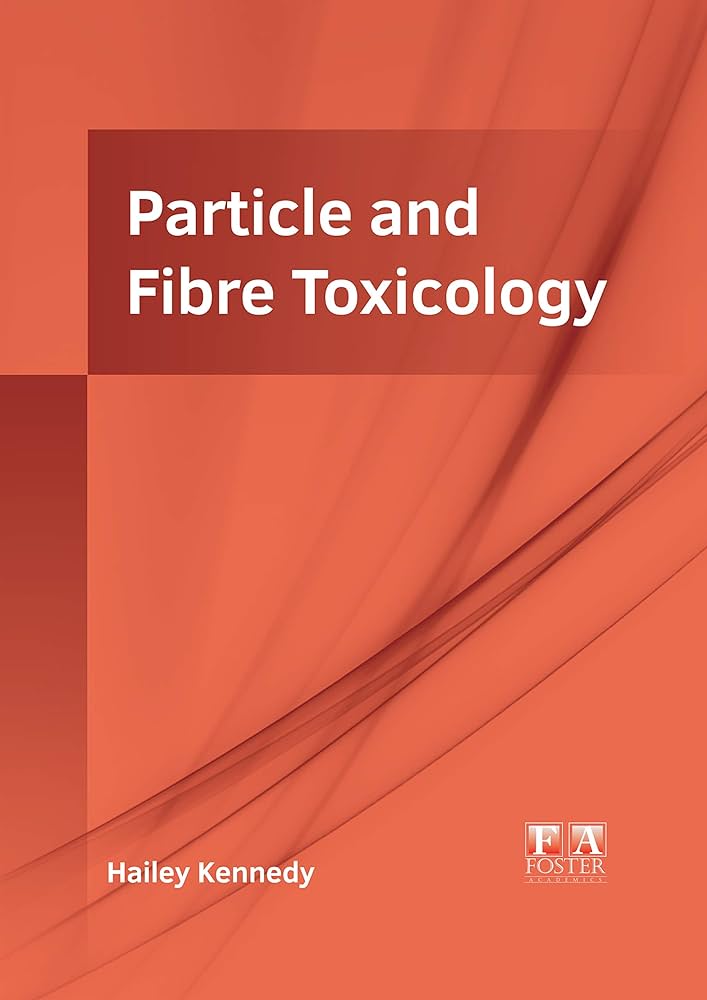The chemical composition of secondary organic aerosols regulates transcriptomic and metabolomic signaling in an epithelial-endothelial in vitro coculture
IF 8.2
1区 医学
Q1 TOXICOLOGY
引用次数: 0
Abstract
The formation of secondary organic aerosols (SOA) by atmospheric oxidation reactions substantially contributes to the burden of fine particulate matter (PM2.5), which has been associated with adverse health effects (e.g., cardiovascular diseases). However, the molecular and cellular effects of atmospheric aging on aerosol toxicity have not been fully elucidated, especially in model systems that enable cell-to-cell signaling. In this study, we aimed to elucidate the complexity of atmospheric aerosol toxicology by exposing a coculture model system consisting of an alveolar (A549) and an endothelial (EA.hy926) cell line seeded in a 3D orientation at the air‒liquid interface for 4 h to model aerosols. Simulation of atmospheric aging was performed on volatile biogenic (β-pinene) or anthropogenic (naphthalene) precursors of SOA condensing on soot particles. The similar physical properties for both SOA, but distinct differences in chemical composition (e.g., aromatic compounds, oxidation state, unsaturated carbonyls) enabled to determine specifically induced toxic effects of SOA. In A549 cells, exposure to naphthalene-derived SOA induced stress-related airway remodeling and an early type I immune response to a greater extent. Transcriptomic analysis of EA.hy926 cells not directly exposed to aerosol and integration with metabolome data indicated generalized systemic effects resulting from the activation of early response genes and the involvement of cardiovascular disease (CVD) -related pathways, such as the intracellular signal transduction pathway (PI3K/AKT) and pathways associated with endothelial dysfunction (iNOS; PDGF). Greater induction following anthropogenic SOA exposure might be causative for the observed secondary genotoxicity. Our findings revealed that the specific effects of SOA on directly exposed epithelial cells are highly dependent on the chemical identity, whereas non directly exposed endothelial cells exhibit more generalized systemic effects with the activation of early stress response genes and the involvement of CVD-related pathways. However, a greater correlation was made between the exposure to the anthropogenic SOA compared to the biogenic SOA. In summary, our study highlights the importance of chemical aerosol composition and the use of cell systems with cell-to-cell interplay on toxicological outcomes.二次有机气溶胶的化学成分调节体外上皮-内皮细胞共培养中的转录组和代谢组信号转导
大气氧化反应形成的二次有机气溶胶(SOA)大大加重了细颗粒物(PM2.5)的负担,而细颗粒物与不良健康影响(如心血管疾病)有关。然而,大气老化对气溶胶毒性的分子和细胞影响尚未完全阐明,尤其是在能够进行细胞间信号传递的模型系统中。在本研究中,我们将肺泡细胞系(A549)和内皮细胞系(EA.hy926)以三维方向播种在空气-液体界面上,并将其暴露在气溶胶模型中 4 小时,旨在阐明大气气溶胶毒理学的复杂性。对凝结在烟尘颗粒上的挥发性生物 SOA(β-蒎烯)或人为 SOA(萘)前体进行了大气老化模拟。这两种 SOA 的物理特性相似,但化学成分(如芳香族化合物、氧化态、不饱和羰基)却有明显差异,因此能够确定 SOA 的特定诱导毒性效应。在 A549 细胞中,暴露于萘衍生的 SOA 会在更大程度上诱导应激相关的气道重塑和早期 I 型免疫反应。对未直接暴露于气溶胶的 EA.hy926 细胞进行的转录组分析以及与代谢组数据的整合表明,早期反应基因的激活和心血管疾病(CVD)相关通路(如细胞内信号转导通路(PI3K/AKT)和与内皮功能障碍相关的通路(iNOS;PDGF))的参与导致了普遍的全身效应。人为暴露于 SOA 后产生的更大诱导作用可能是观察到的继发性基因毒性的原因。我们的研究结果表明,SOA 对直接暴露的上皮细胞的特异性影响高度依赖于化学特性,而非直接暴露的内皮细胞则表现出更普遍的系统性影响,早期应激反应基因被激活,心血管疾病相关通路参与其中。不过,与生物源 SOA 相比,人为 SOA 暴露之间的相关性更大。总之,我们的研究强调了化学气溶胶成分以及使用细胞间相互作用的细胞系统对毒理学结果的重要性。
本文章由计算机程序翻译,如有差异,请以英文原文为准。
求助全文
约1分钟内获得全文
求助全文
来源期刊

Particle and Fibre Toxicology
TOXICOLOGY-
CiteScore
15.90
自引率
4.00%
发文量
69
审稿时长
6 months
期刊介绍:
Particle and Fibre Toxicology is an online journal that is open access and peer-reviewed. It covers a range of disciplines such as material science, biomaterials, and nanomedicine, focusing on the toxicological effects of particles and fibres. The journal serves as a platform for scientific debate and communication among toxicologists and scientists from different fields who work with particle and fibre materials. The main objective of the journal is to deepen our understanding of the physico-chemical properties of particles, their potential for human exposure, and the resulting biological effects. It also addresses regulatory issues related to particle exposure in workplaces and the general environment. Moreover, the journal recognizes that there are various situations where particles can pose a toxicological threat, such as the use of old materials in new applications or the introduction of new materials altogether. By encompassing all these disciplines, Particle and Fibre Toxicology provides a comprehensive source for research in this field.
 求助内容:
求助内容: 应助结果提醒方式:
应助结果提醒方式:


